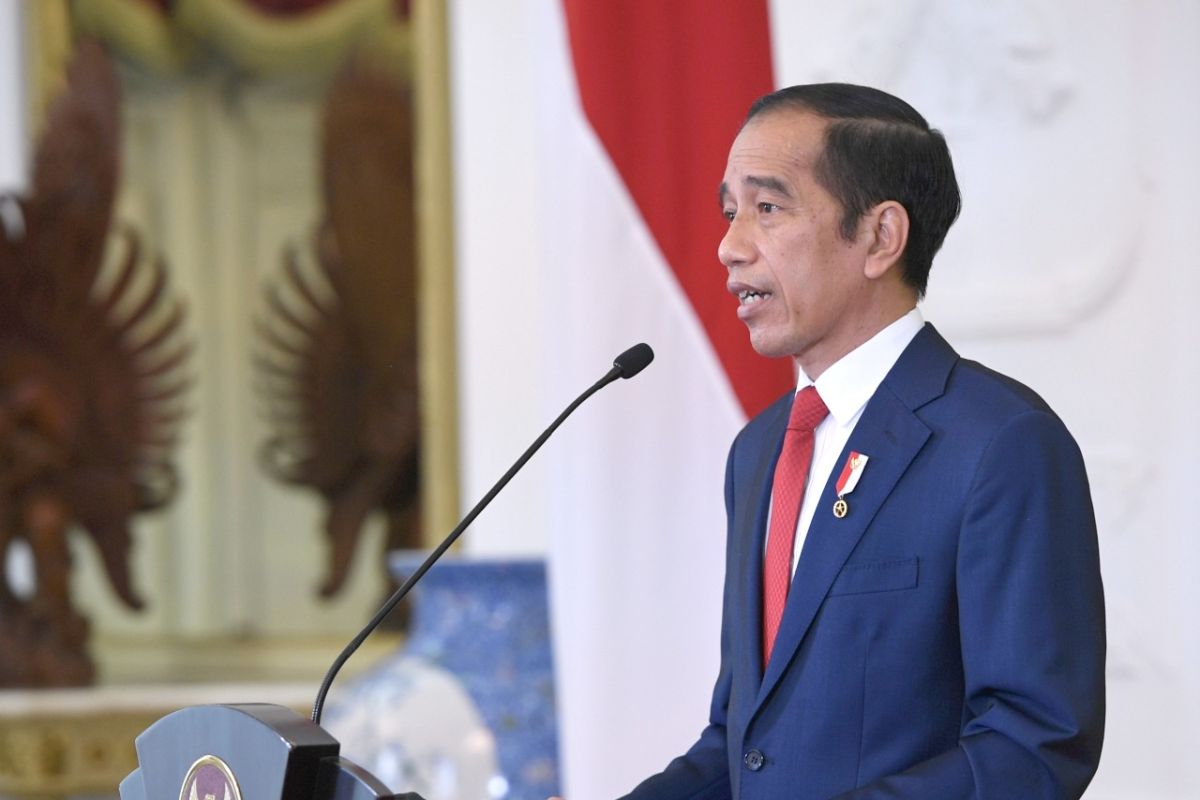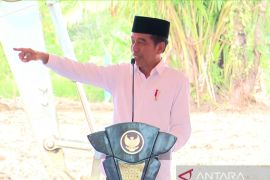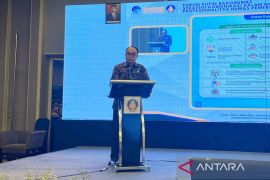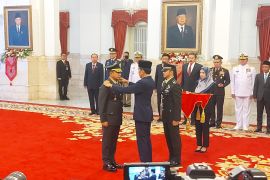“Government regulations and presidential decrees will be completed no later than three months after the job creation law is promulgated,” Widodo said in a statement issued from the Bogor Presidential Palace on Friday.
He said the new law would require implementation of several government and presidential regulations, and invited suggestions on the derivative regulations from all levels of society.
“We are open to public (discussion) and open (to) suggestions from the regions,” he remarked.
The President said Indonesia needs the job creation law for at least three reasons.
First, it would create wider employment opportunities, second, it would provide convenience of doing business to MSME actors, and third, it would support corruption eradication because it is clear that by simplifying, cutting, integrating the electronic licensing system, extortion can be eliminated, he explained.
The Head of State also debunked several reports on the new law, describing them as misperceptions that have sparked widespread demonstrations.
“Basically the background (for the protests) is disinformation about this law and hoaxes on social media. I take an example that the (report on the) abolition of provincial minimum wage (UMP), city minimum wage (UMK), and provincial sectoral minimum wage (UMSP) is not true because, in fact, the Regional Minimum Wage still exists,” the President said.
The House of Representatives (DPR) and the Indonesian government passed the controversial omnibus bill into law on October 5, 2020 amid mounting criticism over its provisions on labor rights, indigenous community rights, and environmental protection.
“According to what we heard, once again let me ask for approvals in this plenary session, can we all agree (to pass the bill into law)?” Deputy House Speaker Azis Syamsuddin from the Golkar Party, who led the session, asked fellow house members.
Most representatives attending the plenary session approved the bill's passage into law.
Before the deliberation, all political parties presented their views on the Omnibus Bill on Job Creation. At least six parties firmly endorsed the omnibus bill, while the National Mandate Party presented a note on the bill. Two parties — Prosperous Justice Party (PKS) and Democratic Party/Partai Demokrat — opposed the bill’s passage.
Following political party representatives, the government presented its views on why the bill needed to be passed into law.
The House and the government held at least 64 meetings to deliberate on the bill, said chairman of DPR’s legislative body, Supratman Andi Agtas, at the plenary session. “The (final) omnibus bill on job creation comprised 15 chapters and 185 articles, while in the previous draft, the bill consisted of 15 chapters and 174 articles,” he noted.
According to Agtas, with the passing of the omnibus law, seven laws mentioned earlier in the bill stand scrapped: Law No.40 Year 1999 on Press; Law No.20 Year 2003 on National Education System; Law No.14 Year 2005 on Teachers and Lecturers; Law No.12 Year 12 on Higher Education; Law No.20 Year 2013 on Medical Studies; Law No.4 Year 2019 on Midwifery; and, Law No.20 Year 2014 on Standardization and Assessment.
However, the House and the government have decided to include four other laws: Law No.6 Year 1983 on Taxation; Law No.7 Year 1983 on Income Tax; Law No.8 Year 1983 on the Sales Tax on Luxury Goods; and, Law No.18 Year 2017 on the Protection of Indonesian Migrant Workers.
Agtas also assured investors the law will cut bureaucratic red tape and expedite business permits through the use of a single system — Online Single Submission (OSS). The omnibus law will also speed up procedures for business certification, he added. (INE)
Related news: Protests against omnibus law sparked by disinformation: President
Related news: Job creation law to improve workers' lives: President
EDITED BY INE
Translator: Hanni Sofia, Azis Kurmala
Editor: Suharto
Copyright © ANTARA 2020












